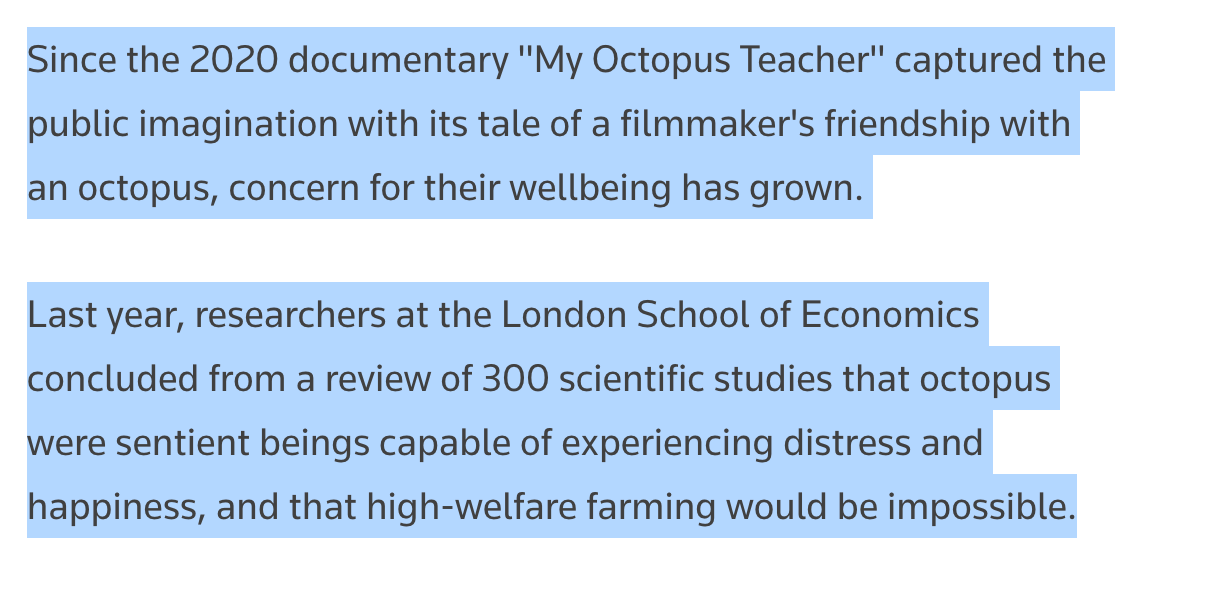Is Agriculture a Business?
It's ridiculous to entertain this question in a newsletter that calls itself "Agribusiness Matters". Nevertheless, can we hold this thorny question without necessarily answering it?
Few days back, a wise friend pointed out to me that the word ‘hypocrisy’ has no equivalent in most Indian languages. It was a powerful aha moment. For the longest period of my life, I’ve found it not too difficult to hold two opposing views.
It also helps that I have a diverse set of friends who represent a rainbow of ideologies and worldviews, whether it is life or agriculture. Longtime readers of this blog turned newsletter would also know what I am talking about. The kick I get in writing Agribusiness Matters is the fact it gives me the license to be promiscuous.
Intellectually speaking, of course.
The cheap thrills of writing Agribusiness Matters is the fact that I can pretend to be a philosopher and playfully ask fundamental questions about quality ($), technology, agribusiness, and the history of agriculture ($).
Today, I want to bring up a thorny question that lies at the raison d’etre of this newsletter ruminations of a mind trying to make sense of this elephant called agriculture.
Is Agriculture a Business?
My name is Venky. I write Agribusiness Matters every week to grapple with vexing questions of food, agribusiness, and digital transformation in an era of Climate change. Feel free to dig around the archives if you are new here.
Is Agriculture A Business?
I began to ask this question in all seriousness when I stumbled upon Janette Barnard’s tweet.


Although she wrote presumably in context with the US and other mature markets, the two underlying assumptions behind her tweet and well-articulated perspective in her excellent newsletter are
IF Agriculture is a Business, for heaven’s sake, let’s treat farmers as independent agents who have their own agency and don’t need any benevolence from consumers or anyone else.
IF The work done by farmers is no more important than the work done by anyone else, then let’s not kid ourselves by claiming that farmers have to be thanked and customers have to be educated.
But what about India and other countries with large smallholding populations? Do these IFs still hold true?
Four Laws of Business of Farming
Harish Damodaran, a veteran journalist, many moons ago, wrote a timeless article which poses the same question, “Is Agriculture a Business? ”and answered it saying, “Yes, except that farmers suffer rules other businessmen never encounter”
He went on to identify four laws of business that govern farming.
Law 1: “Agriculture is the only business where you have both production as well as price risks”
Protected Cultivation is slowly picking up in India among farmers who can afford it.Law 2: “Agriculture is the only business where you buy everything retail and sell everything wholesale.”
Farmer Producer Organisation[FPO} in India and farm cooperatives worldwide have been trying to break this old cliched myth with varying degrees of success. Few other agritech startups are also trying to do the cooperative FPO thing, without necessarily being an FPO. [India -Specific] Law 3: Agriculture is the only business where expansion is a crime."
Because agricultural income is not taxed in India, there has always been a deep suspicion about large agribusinesses. And if farmers have to be treated with benevolence and sympathy, don’t we also need villains on the other end?[India-Specific] Law 4: Agriculture is the only business where the introduction of new technology is a matter of controversy.
While Indian farmers have been responsive to new technologies, always ready to try new things in every new cropping season, the incentive carrots that have been handed over have largely made them risk averse. In my earlier blogs, I have been wrestling with these IFs in different ways.
When I wrote a primer on the Story of Agriculture in India so far, to set the context to understand Farm laws, I wrote a mini-chapter on the free-market myth of Indian Agriculture.
When I dug out the historical pattern that shaped the business of agriculture - Exploitation of Agriculture is necessary for Development, I talked about how agriculture in developing countries is different from agriculture in developed countries
When I wrote about what does it take to make markets work for smallholder farmers in India, I explored the ground conditions that make markets fail in Indian Agriculture and the parameters that are necessary for markets to work in large smallholder regions.
Today, when I look at these two IFs viz.,
IF Agriculture is a Business,
IF the work done by farmers is no more important than the work done by anyone else.
I see them as intertwined like the strands of DNA. You can’t separate these two IFs. They go hand in hand.
Couple of weeks ago, In a strange turn of events that barely made sense, I had a chance to examine the DNA structure of these IFs vigorously, thanks to a rich dialogue I had with one internet stranger whom I shall name X.
This dialogue happened in one of those quaint public (which give me the liberty of curating it here) internet forums where people can talk their minds freely without revealing their identities.
What triggered the conversation was the fact that X was extremely pissed with popular south Indian movies’ proclivity to treat farmers as gods and corporates as evil.
I also did a tweet thread on this phenomenon recently, delving into the creation of an organic farmer hero myth in south Indian movies.

Here is a slightly edited version of the conversation (so that readers across the world could follow) along with my meta-commentary.
X: I’m sick of this romanticization of farmers and agriculture. Leave alone south Indian cinema’s current opportunistic celebration of farmers, even in general, there is nothing “spiritual” about agriculture any more than other industries.
Somehow we city-folk get all mushy when we see agricultural fields in rural areas as if it’s some beautiful part of nature we have lost touch with, and farmers are seen as some wise folk with a deep connection to nature that the rest of us superficial idiots cannot comprehend.
All hogwash.
If anything, a field is the opposite of nature. It’s about cramming a genetically modified species in tiny regions, and torturing the plants and the soil with fertilizers to provide better yield, using pesticides, poisons (or worse, electric fences or firearms) to ward off native animal species that might come in the way of profits, and repeating the process perpetually, ruining the soil and the ecosystem.
Crops are chosen based on demand, and so much water is wasted on non-essential crops this way. It’s like a slaughterhouse or factory farm where animals are cooped up in tiny cages, fattened with steroids, forced to yield eggs/milk, and finally slaughtered for meat. …Even fads like “organic farming” are just buzzwords; cute but un-scalable.
It’s more of a necessary evil, and farmers are just fulfilling a role. They’re not shamans or spiritually connected to nature any more than the cramped chicken coop guy is spiritually connected to the animals he tortures and slaughters.
It is just a business and should be dealt with as one, without maudlin sentimentality. If agriculture is untenable in a region and it is profitable to outsource our food, we must do it, instead of evoking bogus emotional manipulation about “annadatas” [farmers as they are reverentially called in India]. We don’t owe the farmers any debt, nor do we need to feel guilty if they are failing, any more than we feel guilty about other industries failing.
While it is an excellent rant, I was riled by this line” We don’t owe the farmers any debt”, and decided to respond with data served with that peculiar harmless anger you reserve for debating in internet forums. Me: Yeah right, we enjoy low food prices for decades, as the government wants to appease consumers over farmers, who have suffered the economic brunt of policies that favored us, the consumers over the farmers, and we can happily bury our heads in the sand, saying, “We don’t owe any farmers any debt”.
Shall we talk with some data?
When an Indian farmer in 1970 got from the government an MSP( minimum support price) of 76 bucks, the minimum salary of a government employee in India was around 196 bucks. In 2018, while the farmer got paid 1735 bucks for a quintal of wheat, the minimum salary of the government employee was 18000 bucks.
A farmer’s MSP climbed 22 times over a period of forty-eight years(2018-1970), the minimum government salary increased by 91 times, during the same period.
Why did farmers’ MSP not increase as much as a minimum cadre government employee’s salary? We all have benefited from cheap food because government policies favored food security instead of paying the right prices to farmers. That’s how Indians ate fast food snacks for 10 bucks and ate rice for less than 35 a kg (I am talking in the 90s). We enjoyed cheap food because somebody paid for it. Please read India’s economic history before you rant on ’emotional manipulation about “annadatas”. Montek Singh Ahluwalia’s recent memoir, Backstage, is a good place to start with.
X: I don’t see how any of what you say is either relevant or contradicts what I talked about.
If anything, your data-driven historical-research-based approach only supports my relatively inane call to treat agriculture as a business instead of some noble nature-loving social service as our movies (and by extension, mainstream narrative) make it out to be.
Me: In the US, in 2018, the farm share was 14.6 cents of each food dollar expenditure. When the European Commission was asked in parliament to provide details on the average share/percentage of the final price that farmers receive for their produce, relative to the share/percentage received by other actors in the food supply chain, they found that the value-added for agriculture in the food chain dropped from 31% in 1995 to 21% in 2011, mainly in favour of other food chain actors.
What is the bottom line?
Countries that treated agriculture as a business have as much screwed up the lives of farmers as much as countries that treated farmers as “Annadatas” [food gods, as traditionally farmers. have been addressed in India].
In such a case, what will you do?
When do we ask fundamental questions about agriculture? I am not saying we should move away from free markets. I work with farmers and we have been trying to help them get connected with markets. Markets solve demand and supply in a particular way. But that is not sufficient to address the agrarian crisis in our midst. And for that, we have to understand the way food is produced.
X: I don’t understand what you mean.
If not a business, what is agriculture?
Why should it not be governed by demand-supply, government priorities, and food security?
Don’t say poetic stuff about how fundamental and primal food is, we all know that.
Many sectors are essential in their own ways, in that if they suddenly collapse, people will suffer in obvious and less-obvious ways, and most industries are heavily affected by government subsidies and priorities affecting their growth. You say you work with farmers so it may be a high priority for you, but for the rest of us, what is so unique or special about agriculture that we should get so sentimental about it?
Me: Nobody is asking you to be sentimental.
It’s up to you.
In fact, if food is just like any other industry for you, have you considered shutting down your home kitchen and outsourcing your food needs to hotels/ kitchens?
That way, it would make more economic sense no?
When I recently read about the world’s first octopus farm in Spain that has received mixed reactions from trade bodies and conservationists across the world, I came across some interesting responses from those who have opposed it, in the wake of Netflix’s hit documentary, My Octopus Teacher
Since Octopus are sentient beings capable of experiencing distress and happiness, high-welfare farming would be impossible.
If I extend this argument further, in the likelihood of improbable (or probable?) discovery that plants are sentient beings, would we conclude that high-welfare farming would be impossible?
So, what do you think?
How happy are you with today’s edition? I would love to get your candid feedback. Your feedback will be anonymous. Two questions. 1 Minute. Thanks.🙏
💗 If you like “Agribusiness Matters”, please click on Like at the bottom and share it with your friend.






Thank you for this piece, I hope many others benefit from it. As for my two cents/ paise - why is it so hard to think of any work as sacred and yet a business? It should be common sense to understand that food is sacred, in the sense that it is foundational to our physical (and mental) well being. It is important that the process be treated with that importance and by extension, farmers be adequately incentivised and compensated to produce healthy, high quality food.
I went down a rabbit hole of agribusiness matters and ended here for some reason. But for exploring the grey area of where agriculture fits into an economy, this is a most excellent primer, raising the right questions while creating a substantive dialogue and also poking holes in common assumptions (such as it being as straightforward as being a business). This topic could be a really important book in itself!